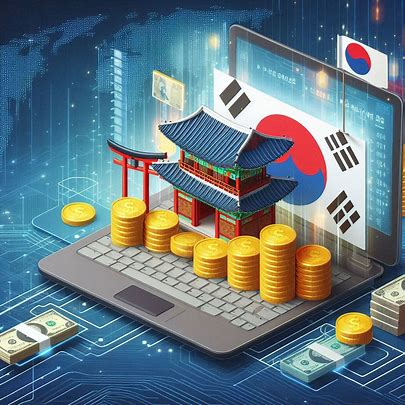Digital wallets and microtransactions are changing how people think about money. South Korea, a tech-savvy nation with one of the world’s fastest mobile payment adoption rates, is now seeing a rise in small payment cashing—a form of digital currency trading that mimics the appeal of forex markets but with a twist.
Instead of trading traditional currencies, consumers are now converting unused digital balances into actual Korean won. Platforms like InfonowKorea (인포나우코리아) have become key players in this space, allowing users to cash out small balances left over in gift cards, gaming credits, or mobile payments. This approach gives new meaning to money trading, especially among younger users who are always connected and comfortable navigating tech platforms.
The Shift From Traditional Forex to Digital Cashing

Foreign exchange trading has long been a fast-paced financial arena. Traders analyze market movements, currency pairs, and global news to make decisions. However, small payment cashing is not about global finance. It’s about convenience, efficiency, and unlocking idle funds. What used to be dismissed as spare change or unusable credits is now viewed as real value waiting to be retrieved.
This shift has become even more pronounced with the rise of e-wallets, gaming platforms, and digital marketplaces. Consumers often find themselves with odd balances—₩1,300 here, ₩4,900 there—spread across different services. These amounts may be too small to spend meaningfully but too valuable to waste. That’s where small payment cashing steps in, acting almost like a micro-forex system where the “currencies” are digital credits, and the goal is to turn them into tangible cash.
Why Young South Koreans Are Attracted to This Trend
Tech-literate consumers in their 20s and 30s are fueling this trend. They’re used to multi-platform payment systems and don’t see money as only existing in a bank account. For them, value exists in all digital forms. They want access and flexibility, whether it’s loyalty points, gaming credits, or online gift balances. And if they can get real-world cash for it, even better.
Much like forex traders thrive on margins and fast conversions, small payment cashers enjoy the quick turnaround. The platforms are fast, the process is simple, and the returns, though modest, are immediate. It doesn’t require financial expertise, just a mobile phone and some leftover digital cash.
Risk, Volatility, and Return: A Different Game
Geopolitical shifts, economic reports, and interest rates heavily influence forex trading. It’s complex and often risky. Small payment cashing, on the other hand, operates in a different environment. There’s minimal volatility—the value of your digital balance doesn’t fluctuate the same way currency pairs do. But there is a different kind of risk. The reliability of the platform, transaction fees, and whether a service can truly cash out certain types of credits are key considerations.
Some users have reported issues with delays or limitations on what kind of payments can be converted. That’s why platforms that gain trust through transparent operations and fast service quickly build loyal followings. They’re also empowering users—turning forgotten credits into useful money with just a few taps.
Is This the Future of Currency Exchange?
While traditional forex markets will always have their place in global finance, the rise of digital-first economies suggests that small payment cashing could become the new norm for everyday consumers. It democratizes the idea of trading value. Instead of millions of won, dollars, or yen, people exchange thousands or even hundreds—but doing it frequently and with purpose.
It also reflects the modern consumer’s mindset. Efficiency, access, and flexibility matter more than formal processes. Just like streaming replaced DVDs and digital wallets replaced physical ones, small payment cashing could become the standard for managing micro-funds in the near future.
READ ALSO: Money Trading: Understanding the World of Financial Markets
Final Thoughts
Money is no longer just about coins and paper. It exists in loyalty apps, gaming platforms, and digital gift cards. And now, thanks to innovative services, that money is tradable. Whether this becomes as mainstream as forex remains to be seen, but one thing is clear—South Korea is again leading a digital shift that might change how the rest of the world thinks about everyday currency.
